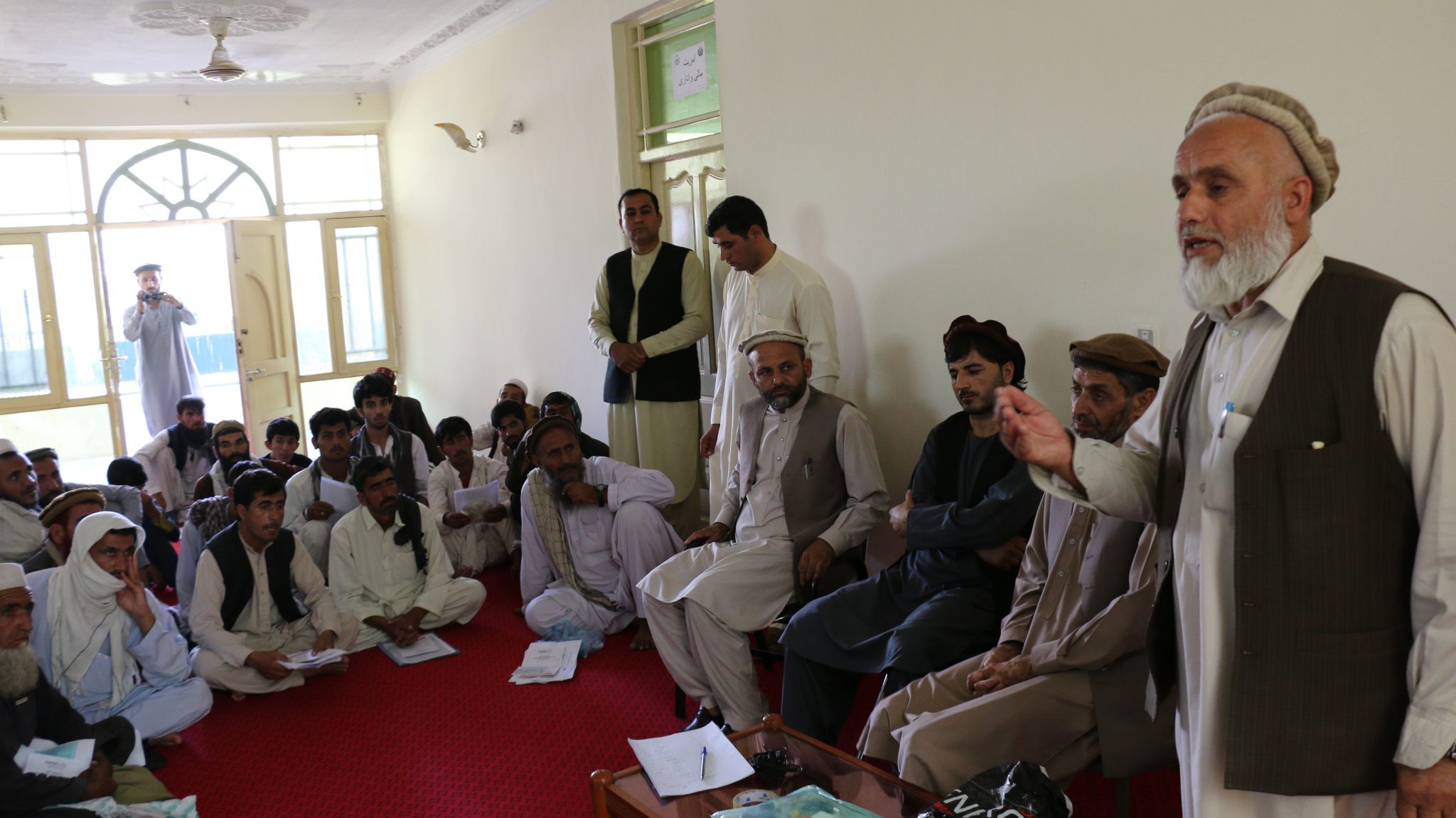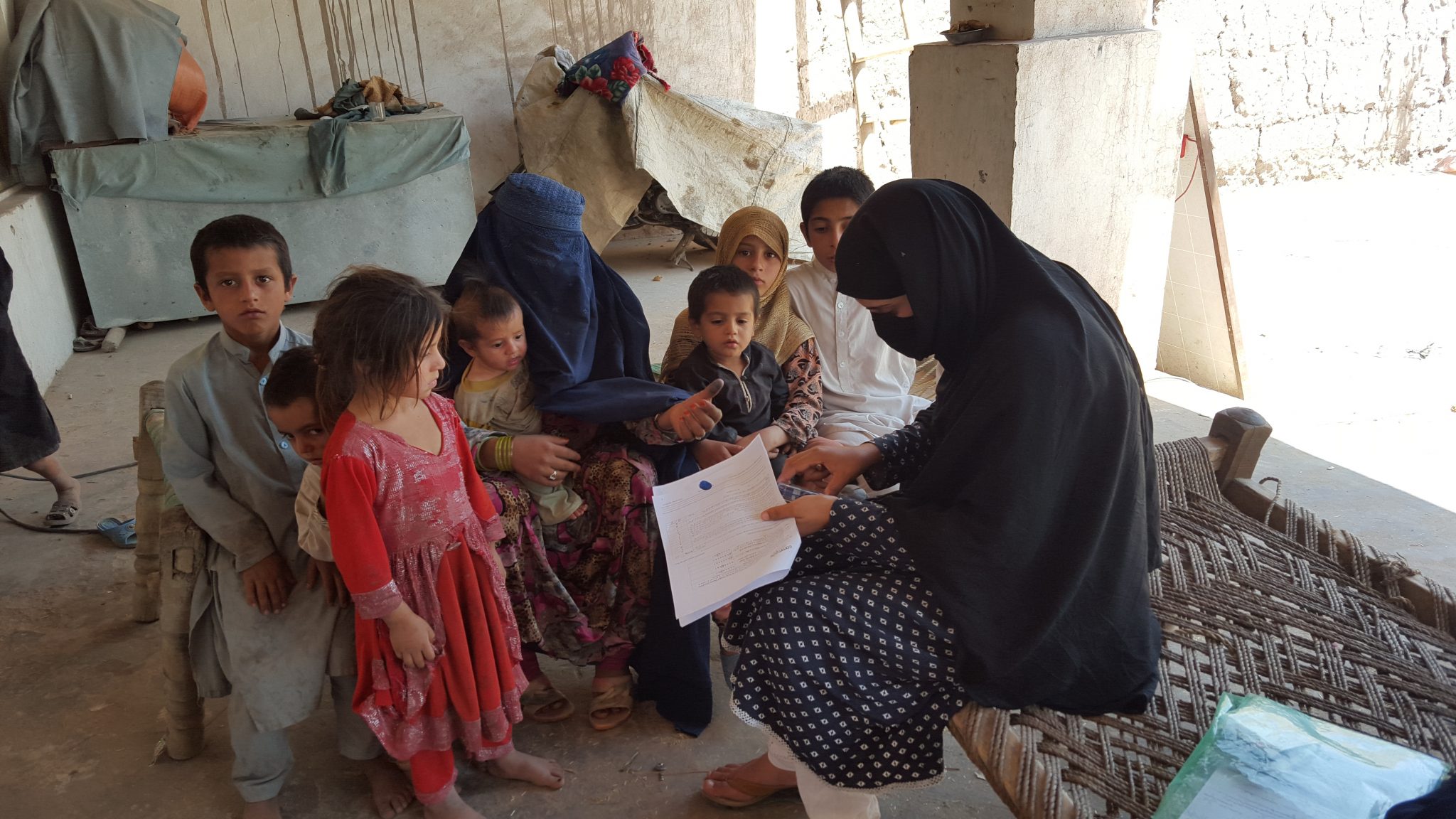Cash for food in Afghanistan – CWSA boosts Commitment 5 of the CHS through continuous involvement of returnee community
Since January 2017 Community World Service Asia (CWSA) has supported 1,900 returnee Afghan families by virtue of three small-scale emergency relief projects. The last of these projects was initiated in May this year. With the support of the Japan Platform, it aims to enhance the nutrition and food security of 365 returnee families in the Laghman and Nangarhar provinces of Afghanistan by providing them with cash for a duration of two months. The families get two monthly $90 grants to purchase food packages that comply with Sphere’s minimum standards.

As a member of the CHS Alliance and ACT Alliance – which certified against the Core Humanitarian Standard on Quality and Accountability (CHS) in November 2017 – CWSA puts crisis-affected people at the centre of their assistance. “The CHS offers us continuous guidance to ensure that we streamline quality and accountability throughout our assistance to crisis-affected communities,” says Marvin Parez, Regional Director, CWSA. “We established completely transparent relationships with the returnee families we assist in order to ensure the welfare and inclusion of returnee families throughout the project lifecycle.”
An elders committee to identify most vulnerable families
In order to help identify the most vulnerable returnee families, CWSA established a committee consisting of elders from the returnee community, as well as representatives of the United Nations Office for the Coordination of Humanitarian Assistance (UNOCHA), the International Organisation for Migration (IOM) and the Directorate of Refugees and Repatriation in Afghanistan (DORR).
In cooperation with other key stakeholders, the elders’ committee established eligibility criteria. Families with more than nine members, with disabled persons, with members suffering from chronic diseases and those living in poor economic conditions were eligible. Once the selection process completed, the project team handed out bank cards to families, separating men and women in order to respect local culture and protect women from any harm or social dilemmas.
Eight complaints received
To ensure that the families have received their cash grants and that this sufficiently helps them in terms of food security, the project team set up a Complaints Response Mechanism (CRM). They thoroughly explained the CRM model to recipient families in two separate sessions, one aimed at men and one at women. A complaint handling committee was also established, composed of representatives of the returnee community, UNOCHA, DORR and CWSA. The committee was briefed on how to coordinate with and reach out to relevant bodies upon reception of a complaint and in the event of an emergency.
“We set up complaints boxes at each distribution point, displaying the contact details of the persons to whom families can reach for an immediate response,” explains Hazrat Ali, Health Advisor with CWSA in Afghanistan.
By the end of the project life cycle, eight complaints, mostly relating to selection criteria and other humanitarian agencies, were lodged. CWSA answered the complaints related to selection criteria by explaining the selection process, while complaints relevant to other organisations, such as DORR, UNOCHA and IOM were transferred to each organisation respectively.
A woman who missed the cash distribution for unforeseen reasons, despite featuring on the list, filed a complaint. The team made a quick verification and immediately gave her her grant. She was very thankful and expressed relief, as she had thought that her complaint may go unnoticed.
“The community’s response to the CRM is very positive,” says Hazrat. “They are very pleased and grateful to have the mechanism in place and to have been properly oriented about it. The community has shared that this is the first time that someone is addressing their complaints and is actually listening to their problems and responding accordingly.”

CWSA strives to live up to Commitment 5 of the CHS – “communities and people affected by crisis have access to safe and responsive mechanism to handle complaints” – throughout our programmings. “We firmly believe in the rich and indigenous knowledge and capacities of crisis-affected people, and that they understand their problems and can suggest solutions to them better than anyone else,” says Hazrat. He explains that the CRM helps aid workers strengthen their relationship with the people they serve and, ultimately, better tailor their assistance.
“One of the key successes of this project is that we were able to increase women’s participation in the project from 10% to 30%, as compared to the previous phases of the project,” says Rabia Sabri, Programme Coordinator, CWSA. This was achieved through the involvement of returnee communities in the selection process and throughout the implementation of the cash-for-food project. Women were given the opportunity to participate in information sessions about nutrition. They found it very interesting, hoping to ultimately improve their children’s nutritional conditions. “They were also informed about the complaints response mechanism, and were invited to launch complaints if necessary,” Rabia continues. “Many were grateful to be given this opportunity.”
For nearly four decades, Pakistan has been home to millions of Afghan refugees who fled from insurgencies and conflicts in their country. Under the UNHCR-facilitated voluntary repatriation programme launched in 2002, around 4.3 million people returned to Afghanistan. In July 2016, approximately 370,000 registered Afghans returned to their homeland under UNHCR’s voluntary repatriation programme. Thousands of repatriated families live under open skies, with no financial support and none of the most basic supplies. Due to scarce employment opportunities, most of those who have returned to their homeland live in a state of poverty, hunger and desolation. In March this year, the UNHCR called upon the international community to provide support to Afghan refugees and their host communities in Pakistan, as well as provide targeted development assistance in Afghanistan to support the sustainable re-integration of returnees and avoid further displacements.
